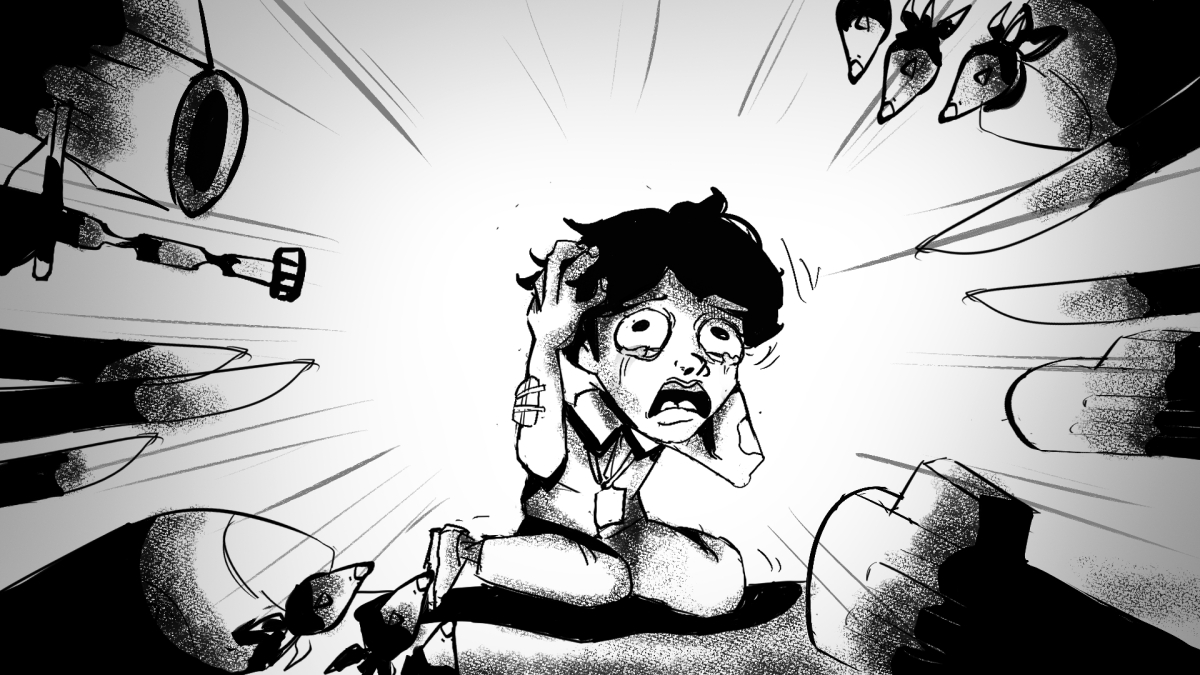by Arianne Enderez || Cartoon by Kyle Nase
I hate freshies. Freshies make my blood boil. These kids are so disrespectful and culturally unfunny that it makes me want to physically turn into a propeller and catapult them at 100 mph.
The previous statements expressed before this paragraph are sentiments that every senior probably felt when a new batch of PSHS students came onto campus. It is customary, considered a tradition and culture even, to feel hostile towards these 11 to 12-year-old kids who are fresh out of elementary school. But, are these kids that bad? Are they really as intolerable as our higher-ups complain? Are these kids that big of a narcissist, with prideful and overly pretentious egos? Do they deserve the hate and rage that sprout from their seniors?
The roots of ‘freshie hating’ can be traced back to the high demeanors of swaggering freshmen who freshly passed the National Competitive Examination (NCE)—considered one of the hardest entrance exams in the country, with only around 10% of examinees capable of grabbing a slot—with a desire to establish validation, relevancy, and inclusivity. Most of the time, this attempt of mentioned values falls short to achieve its objective due to its lack of knowledge and understanding of Pisay culture. Which, in return, drives seniors to loathe or hold a grudge against these 11 to 12-year-olds.
One of the primary examples of these scenarios occurring comes from an online page on Facebook where students belonging to Pisay (or even those outside the school) can anonymously submit their undying love confessions, giddy messages to mess with their friends and complaints or rants about contemporary societal issues — Pisay Hugot. These anonymous submissions are posted for everyone in the world to see if approved by one of the admins of the page—following strict guidelines such as the ban of hate speech, bullying, and distasteful topics—but somehow, anonymous submissions that clearly exhibit this essence still surpass the filters, even under the surveillance of an external party. Consequently, anything a freshman states, even if it is painfully evident that the child lacks the mental maturity and critical thinking to create an insightful and modest opinion about a peculiar topic, is posted for the whole world to view.
If we’re educating these children to be more considerate and sensitive about their verbal and physical inflictions towards other people, wouldn’t we get to avoid instances where they lack these requisite features? Though it seems like we allow this type of behavior for the sole, and vile mindset of, “they’ll learn the hard way,” only for them to receive the brutal backlash that results from the severity of their consequences. Instead, we should cultivate an environment that is complemented by a support system, providing them the guidance and understanding they need to navigate through challenges. Which includes providing them with less harsh reality checks, and assessing their current behavior. Although some freshmen will likely refuse to change and remain the ignorant, self-centered character that they are; it is with hope however, that some will listen and actually make an effort to improve for the better.
The mental age gap between a recent primary school graduate and an 8th grader who had already been grilled with the brutal reality and lifestyle of a scholar —is like a 5-year-old kid talking to a 30-year-old man going through a midlife crisis. We should not expect that these children are emotionally and mentally prepared to face the scary environment which is known as the Pisay culture from the get-go. “It’s just culture,” they say, but that culture needs to be reevaluated to better conditions to create an environment that is welcoming for all.

